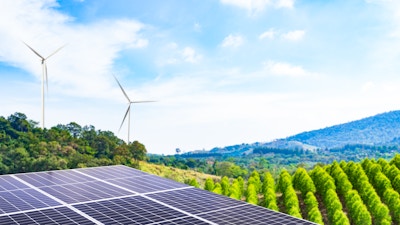The Laboratory for Sustainable Materials Research and Innovation was created to serve as a springboard for early-stage research into technologies that can transform the way we source and use materials – from textiles and plastics to food and energy – to address the climate crisis.
Our goal is to provide support to bring to life breakthrough technologies by bridging the funding gap that often prevents even the most revolutionary technologies from reaching commercial scale. We are focused on efforts within the areas of synthetic biology, biomanufacturing, clean air, and water.
Investing in early-stage sustainability solutions is an investment in the future of our planet for generations to come. Join us in helping these revolutionary technologies make a positive impact within our lifetimes.
Current Opportunities
-
 Algae Foam for Home Insulation
Algae Foam for Home InsulationBuildings and infrastructure contribute to approximately 39% of global carbon emissions, of which the extraction, manufacturing, and construction phase accounts for just under one third. We propose to advance the development of an algae insulation foam that not only reduces the embodied carbon emissions of buildings, but also contributes to lowering operational emissions due to improved thermal insulation.
-
 Cyanobacteria Engineered to Produce Materials
Cyanobacteria Engineered to Produce MaterialsFast-growing cyanobacteria are emerging hosts for food and materials production as they do not rely on sugar-based feedstock that inevitably competes with crop production. Combining synthetic biology tools and bioreactor design, we are developing an automated evolution platform for cyanobacteria optimized for growth in harsh environments. Our platform has a vast number of potential applications, including a demonstrated ability to secrete various proteins and produce biocement.
-
 Biomining of Rare Earth Elements
Biomining of Rare Earth ElementsClean energy technology requires significant amounts of critical minerals, including lithium, nickel, cobalt, copper, and rare earth elements, but traditional methods of extracting and purifying these elements are environmentally damaging and costly. We are designing proteins and bacteria that can selectively sense and accumulate these valuable elements from complex mixtures, to bring us closer to cleaner, bio-based approaches for acquiring these critical elements, while reducing the environmental impact of the process.
-
 Microbes that Convert Non-biodegradable Waste into Bioplastic
Microbes that Convert Non-biodegradable Waste into BioplasticOne of the most pressing sustainability challenges today is reducing the growing impact of our plastic waste on the planet, particularly in our oceans. Plastic debris has an adverse effect on marine ecosystems through entanglement, ingestion of microplastics by animals, and leaching of toxic chemicals. We are developing a platform for converting non-compostable plastic waste into fully compostable bioplastic materials using engineered microbes to help alleviate this crisis.
-
 Bio-Weathering Bacteria for Enhanced Carbon Capture
Bio-Weathering Bacteria for Enhanced Carbon CaptureOur oceans absorb 25% of carbon dioxide emissions on our planet, making them a vital buffer against the impacts of climate change. This absorption occurs in part through the natural process of “weathering,” in which silicate minerals like olivine dissolve into the ocean, raising its pH and allowing it to absorb more carbon. We are engineering microbial communities that can accelerate the dissolution of silicate minerals, which will enable industrial-scale processing of silicate minerals and create other uses for dense, carbon-negative biomass in unprocessed seawater.
-
 Protecting the Ocean with Red Tide Detection
Protecting the Ocean with Red Tide DetectionRed tide, another name for an algal bloom, is caused by an increase in the population of toxic algae. Many red tides produce toxic chemicals that can cause health problems for both marine organisms and humans. We have developed a suite of tools for the rapid and inexpensive molecular sensing of environmental DNA from ocean samples. This modular system enables the on-site identification of any species of interest from ocean water within a fraction of the time compared to current laboratory-based methods. Based on next-generation CRISPR-based detection of DNA/RNA, our sensing technology will facilitate higher density data collection and immediate result acquisition to inform policy decisions and ecosystem monitoring as marine organisms undergo population transitions due to climate change.
